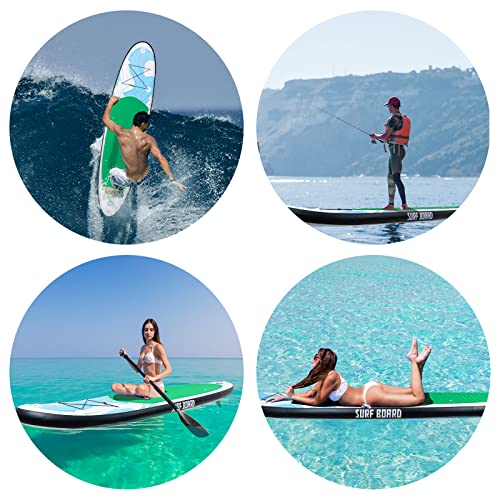
Hello, fellow water sports enthusiasts! If you’ve ever found yourself wondering about the difference between paddleboarding and traditional surfing, you’re in the right place. Both are fantastic activities that develop balance and strength, and you may want to read more about maintaining your balance on a paddlebaord, especially in choppy waters. Today, we’re going to take a deep dive into these two fantastic aquatic activities, discuss their similarities and differences, and help you decide which one might be best for you. Let’s dive in!
The Thrilling World of Paddleboarding
Paddleboarding, also known as stand-up paddleboarding (SUP), is a fast-growing water sport that involves standing on a large, stable board and propelling yourself through the water using a paddle. It’s an excellent activity for people of all ages and fitness levels, as it combines balance, strength, and endurance, all while offering a fun and unique way to explore your surroundings.
Paddleboarding has its roots in ancient Polynesia, but it has gained popularity worldwide in recent years. It’s a versatile activity that can be enjoyed on a variety of water bodies, such as lakes, rivers, and oceans. With the growing interest in this sport, there is a wide range of paddleboards for sale to cater to different preferences and skill levels.
Traditional Surfing: Riding the Waves
On the other hand, traditional surfing is all about catching waves and riding them towards the shore. Surfers use smaller, thinner boards specifically designed for manoeuvrability on the water. Unlike paddleboarding, surfing requires a particular set of conditions – primarily, you need waves!
Surfing originated in Hawaii and has since become a global phenomenon, with millions of people around the world taking part in this adrenaline-pumping activity. While both paddleboarding and surfing involve riding a board on the water, their similarities end there.
Paddleboarding vs Surfing: The Key Differences
There are several notable differences between paddleboarding and surfing, which can help you decide which sport is more suitable for you:
- Equipment: Paddleboards are generally larger and more stable than surfboards, making them easier to balance on. Additionally, paddleboarding requires a paddle, while surfing relies on arm strength to paddle into waves.
- Technique: Paddleboarding involves standing upright and using the paddle to propel yourself, while surfing requires lying prone on the board and using your arms to paddle into the wave. Once on the wave, surfers must quickly pop up into a standing position.
- Location: Paddleboarding can be enjoyed on various water bodies like lakes, rivers, and oceans, whereas surfing requires waves, which are typically found at ocean beaches.
- Learning Curve: Paddleboarding is generally easier to pick up for beginners, as it requires less balance and skill than surfing. However, both sports offer plenty of opportunities for growth and skill development as you gain experience.
- Fitness Benefits: Both paddleboarding and surfing provide excellent full-body workouts, but paddleboarding tends to be more focused on core strength and balance, while surfing emphasises upper body strength and agility.
How to Choose the Right Water Sport for You
When it comes to choosing between paddleboarding and traditional surfing, it ultimately comes down to your personal preferences and location. If you live near a beach with consistent waves, surfing might be the perfect activity for you. However, if you’re looking for a more relaxed and versatile water sport that you can enjoy on a variety of water bodies, paddleboarding is an excellent choice. It is also possible to surf on paddelboards that are designed for use on waves and there are many exciting future developments in stand up paddleboarding.
Regardless of which water sport you choose, always remember to invest in quality equipment, take lessons from experienced instructors, and practice water safety. For more information on water sports and other outdoor adventures, visit the Rock and Mountain blog for more useful guides and articles.

